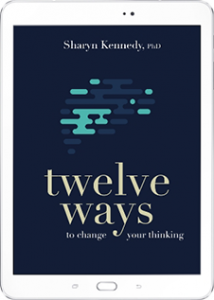This website uses cookies so that we can provide you with the best user experience possible. Cookie information is stored in your browser and performs functions such as recognising you when you return to our website and helping our team to understand which sections of the website you find most interesting and useful.
Do I Have an Anxiety Disorder?

Do I Have an Anxiety Disorder?
If you think you might have an anxiety disorder, you should consult with a professional as it takes training and expertise to diagnose anxiety disorders.
We all experience anxiety. Our pulse rises a bit, we get an adrenalin spike, and all our senses are heightened. It’s a normal reaction when there’s something important or unpleasant upcoming, especially if the outcome is unknown.
- If the boss calls you into his or her office and you’re not sure it’s a good thing, that causes anxiety.
- When you have a big sales meeting with an important client, and you’re not sure what they’re going to decide, that causes anxiety.
- If you’re doing something unpleasant that causes anxiety.
Simple anxieties like these are NOT a sign you have an anxiety disorder.
Worry
That said, if you find yourself in near-constant worry, you should pay attention. The things we worry about are important, uncertain, or unpleasant. If you find yourself worrying about things that are trivial, almost certain, or pleasant, you’ll want to take note.
- When your boss asks for an update on a project that’s going well, and you start wondering if you’re going to get fired, that’s something to pay attention to.
- If your friends ask you to join them at a bar for a few drinks and you start thinking that you’re going to embarrass yourself, you should pay attention.
- When getting a simple message to call someone back causes thoughts that something has gone wrong, it’s something you should look at.
While we all worry about things, what we worry about matters. If you’re worried about something you don’t think most people worry about, you might want to consider seeking help.
Spiral Affect
Anxiety disorders don’t stop with worry. Those with anxiety disorders don’t simply worry about things others don’t; they worry about how much they worry.
Let’s take an unplanned meeting with the boss as an example. The boss calls to tell you they want to meet in a few hours. A little anxiety is common. Employers have several ways to impact your life materially, so there’s a high degree of importance and uncertainty involved.
People who don’t have anxiety disorders feel a little bit anxious, prepare their best and go into the meeting planning to do the best they can.
People with anxiety disorders feel very anxious. Their heart races. They get a lump in their chest. They feel trapped. They want to do almost anything else.
They think they’re more worried about a simple meeting than they should be, so they start worrying about whether they’re too worried. Their heart races faster, their palms start to sweat, and they get either very fidgety or very still.
They know that the best way to deal with an uncertain situation is to be as prepared as possible, so they start trying to gather the status of all the things they’re working on, but they find it difficult to concentrate. That ratchets up the anxiety cycle, so they worry more and more and more. It can get so bad they are unable to function even in common everyday situations.
Above all, for people with an anxiety disorder, that typical everyday anxiety isn’t just unpleasant; it’s the start of a downward spiral that can lead to debilitating fear.
Avoidance
Our brains don’t like feeling anxiety, so when we’re faced with situations that cause anxiety, our brains want to do something—anything—else.
If you find yourself putting off simple tasks that shouldn’t be a problem, you should ask why. Are you procrastinating going to the dentist because it’s unpleasant, or are you putting it off because every time you think about it, you get a stress reaction?
Are you putting off paying the bills because you’re always unsure about your financial situation?
Is there something you’re putting off because you’re not sure how to do it? Is the prospect of learning something new terrifying?
Do you have a project that’s complete that you can’t turn in because you must go over it just one more time to make sure it’s perfect?
These are all avoidance behaviors. There’s something you need to do, but it causes you anxiety, so you do something else. You ignore the bills. You procrastinate in making that appointment. You don’t know how to start and you can’t possibly finish.
If that sounds like you, you should consider talking to a professional.
Is It Affecting Your Life?
Almost anything can be an avoidance behavior. Fatigue and manic behavior are both signs of anxiety. So are an overabundance of sleep and insomnia. Fidgeting, freezing, shortness of breath, a pit in your stomach, a heaviness in your chest, headaches, an inability to concentrate, and a sense of complete and utter hopelessness are all signs of anxiety.
But there’s one overarching sign of anxiety that ties back into the opening sentence of this post.
Do you think you might have an anxiety disorder?
If you do, it’s probably not because you felt a little nervous the last time your boss called you into the office and it’s probably not because you got an adrenalin rush before a big meeting.
It’s probably because you feel like anxiety is robbing you of your ability to live the life you want to live.
It might be as simple as anxiety keeping you from doing some of the things you like best in life. Social anxiety can keep you from dating or seeing friends. Work-related anxiety can keep you from seeking a promotion you deserve.
Anxiety can affect every part of your life. Anxiety can ruin every part of your life. But it doesn’t have to.
You deserve to live your best life. Anxiety can be treated. You don’t have to feel this way.
Seeking help for your anxiety might trigger your anxiety. It’s one of the most common reasons people don’t seek help. They don’t want to spend time and money on something that doesn’t help. But remember, your best life is on the other side of treatment.
We’ve made it easy to get started. There’s a free download below. Simply click the e-book image and you’ll reach a signup form. Give us your best e-mail address and we’ll send the e-book out right away.
Categorised in: Uncategorized.





